Organised by the UAE Government in partnership with the World Economic Forum (WEF), the Annual Meetings of the Global Future Councils and Cybersecurity 2025 are gearing up to launch on Tuesday in Dubai, where they will run until 16th October.
With more than 700 experts and specialists joining from 93 countries, the meetings offer an exceptional space to foster international dialogue and enhance cooperation towards a common goal: to forecast the future of vital sectors and address rapidly evolving global challenges.
The event features 37 councils in total, covering six main topics: Technology, Economy, Society, Environment, Governance, and Health. Experts will focus on advancing global efforts to design a sustainable future, enhance the quality of life for communities, and create opportunities for future generations.
Mohammad Abdullah Al Gergawi, Minister of Cabinet Affairs, Co-Chair of the Global Future Councils, and Member of the WEF Leadership Council, said, “Under the leadership of President His Highness Sheikh Mohamed bin Zayed Al Nahyan, and the directives of His Highness Sheikh Mohammed bin Rashid Al Maktoum, Vice President, Prime Minister and Ruler of Dubai, the UAE is committed to championing global dialogue and international cooperation, accelerating the pace of progress and development, and empowering nations and communities to actively participate in shaping the future.”
“This is a fundamental tenet of our vision and strategic direction, which has now been cemented as an established approach that can be clearly seen in the UAE’s impactful role in fostering global action and changing people’s lives for the better,” Al Gergawi added.
He explained that the world is undergoing rapid developments across various vital sectors, propelled by the fast-paced evolution of AI and technology, and further exacerbated by growing cybersecurity challenges, a complex geopolitical situation, an economic system transitioning towards new models, and ever-evolving social structures.
The Councils, he said, serve as a crucial reference for shaping a global, future-oriented thought process and visions, and developing tailored solutions for future challenges. They offer a prominent platform for sharing knowledge and experiences, facilitating international cooperation, and rallying efforts to transform shared visions into constructive realities.
Al Gergawi noted that the UAE Government’s long-standing partnership with the World Economic Forum has transformed the Annual Meetings of the Global Future Councils into a platform dedicated for shaping a better future, with takeaways from these meetings later serving as key pillars in the official agenda of the WEF Annual Meeting in Davos.
“This reflects our shared vision to advance future foresight as an established institutional practice,” he said. “It forms the basis for an open-ended international partnership that strives to turn ideas into opportunities and visions into solutions that support sustainable development and prepare communities for anticipated future developments.”
“Shaping the future is a collective and global endeavour,” he stressed; “no single nation can achieve it alone without coordination and joint efforts among governments, organisations, and stakeholders across various sectors.”
On the same note, WEF’s President and CEO Børge Brende affirmed that the world is experiencing an unprecedented phase of interconnected political, economic, social, environmental, and technological challenges, which makes strengthening international cooperation and integrating cross-disciplinary efforts indispensable for addressing urgent future issues.
Brende went on to explain that the Global Future Councils, held in the UAE, are a leading platform that brings together a distinguished group of thought leaders and experts from around the world to forecast global transformations and outline innovative solutions for a more sustainable and prosperous future.
“The strategic partnership between the UAE Government and the World Economic Forum presents an inspiring model for international cooperation that is based on a shared vision, openness, and a commitment to exchanging expertise,” he noted, stressing that this ongoing cooperation enhances the international community’s ability to spearhead constructive and sustainable change that promotes progress and prosperity in societies.
Holding the Annual Meetings of the Global Future Councils and the Annual Cybersecurity Meeting concurrently, which marks the first time this is being done, highlights the importance of this annual international platform and its role in providing an open space for dialogue and international cooperation in areas that most impact communities’ lives and future.
The Annual Meeting on Cybersecurity is a pivotal event and a dedicated platform focused on driving cooperation towards a more secure and resilient cyber space. It brings together more than 150 leading cybersecurity experts from around the world, along with over 90 speakers, representing business sectors, governments, international organisations, civil society, and academic institutions.
The current edition of the Global Future Councils will see new councils formed and new members welcomed, leveraging fresh expertise from leaders with diverse backgrounds to broaden the community’s horizons and enhance its scope of influence.
The Annual Meetings of the Global Future Councils 2025 will include the launch of the Output Labs, a notable addition to the Councils’ agenda, bringing together experts in global economics, digital security, and climate to develop new insights and pathways that provide leaders around the world with a deeper understanding of fundamental challenges.
The Labs will feature workshops convening members from multiple councils with diverse areas of expertise. The multidisciplinary Labs aim to generate novel insights that provide Global Future Councils experts and decision-makers with a more holistic understanding of key areas, paving the way for deeper collaboration in the future.
Furthermore, the Councils’ activities will engage wider communities, welcoming new figures, high-ranking executives, and entrepreneurs in the Middle East and North Africa region, in addition to regional sustainability leaders, in a bid to enhance regional and global impact.
The Global Future Councils feature a network of Collaboration Clusters that will help in organising workshops focusing on diverse themes. These include a workshop by the Global Regulatory Innovation Platform (GRIP) focused on setting smarter guidelines for developing innovative, agile, and comprehensive government legislation, as well as a session by the UAE Centre for the Fourth Industrial Revolution (C4IR) on multicultural robots in everyday life.
The agenda also includes a Strategic Intelligence Activation, the Food Innovation HUB National Leadership Council Meeting, Trade Tech panel discussion, and the Digital Health panel discussion with the Department of Health - Abu Dhabi.
The Global Future Councils reflect the advanced stage that the impactful strategic partnership between the UAE and WEF has reached. Both parties are committed to building upon their constructive collaboration in organising the Annual Meeting of the Global Future Councils for over 16 years, during which 900 Councils were held, engaging 12,000 officials, experts, and specialists from around the world, and covering topics that most affect people’s lives and future.
 Kuwait named Guest of Honour at DIHAD 2026
Kuwait named Guest of Honour at DIHAD 2026
 UAE expresses solidarity with Greece, conveys condolences over victims of factory fire
UAE expresses solidarity with Greece, conveys condolences over victims of factory fire
 China's Xinjiang sees steady growth in 2021-25
China's Xinjiang sees steady growth in 2021-25
 Dubai International Chamber attracts 64 multinational companies to Dubai in 2025
Dubai International Chamber attracts 64 multinational companies to Dubai in 2025
 FAB posts AED21.11 billion profit in 2025
FAB posts AED21.11 billion profit in 2025
 Casa Mikoko, Luxeglamp puts Umm Al Qaiwain on eco-luxury tourism map
Casa Mikoko, Luxeglamp puts Umm Al Qaiwain on eco-luxury tourism map
 AD Ports Group, BigBear.ai announce partnership
AD Ports Group, BigBear.ai announce partnership

 Kuwait named Guest of Honour at DIHAD 2026
Kuwait named Guest of Honour at DIHAD 2026
 UAE expresses solidarity with Greece, conveys condolences over victims of factory fire
UAE expresses solidarity with Greece, conveys condolences over victims of factory fire
 China's Xinjiang sees steady growth in 2021-25
China's Xinjiang sees steady growth in 2021-25
 Dubai International Chamber attracts 64 multinational companies to Dubai in 2025
Dubai International Chamber attracts 64 multinational companies to Dubai in 2025
 FAB posts AED21.11 billion profit in 2025
FAB posts AED21.11 billion profit in 2025
 Casa Mikoko, Luxeglamp puts Umm Al Qaiwain on eco-luxury tourism map
Casa Mikoko, Luxeglamp puts Umm Al Qaiwain on eco-luxury tourism map
 AD Ports Group, BigBear.ai announce partnership
AD Ports Group, BigBear.ai announce partnership



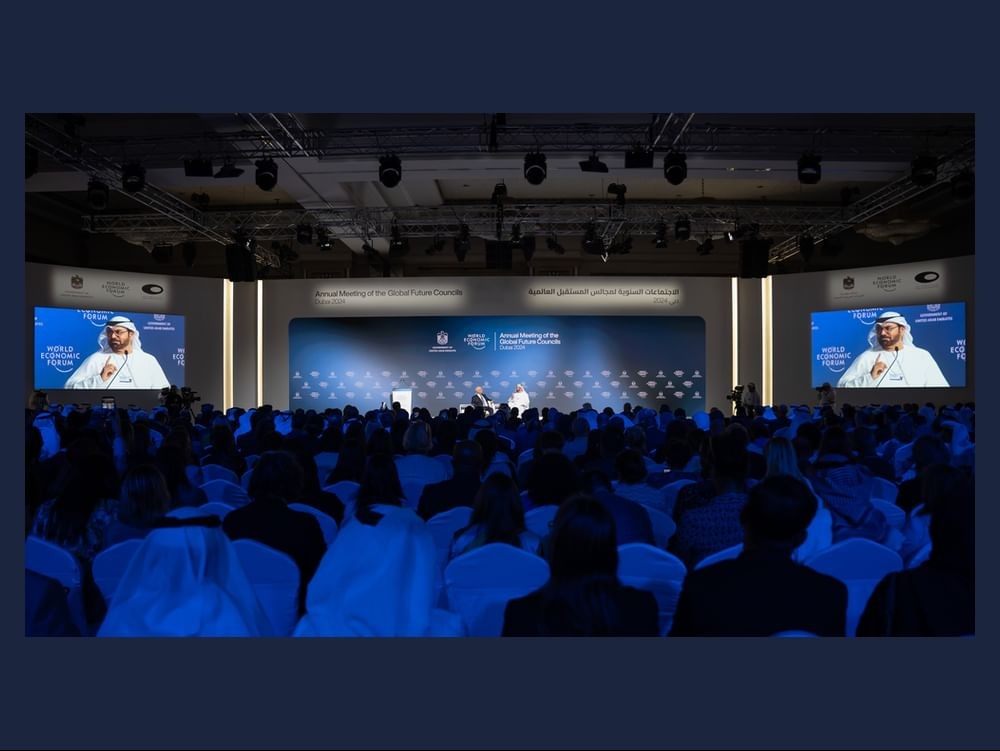



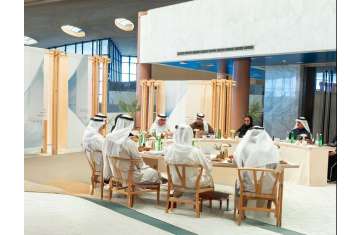
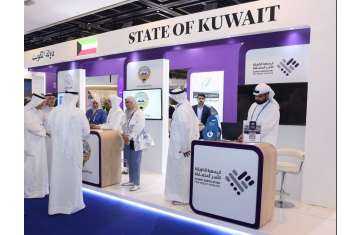
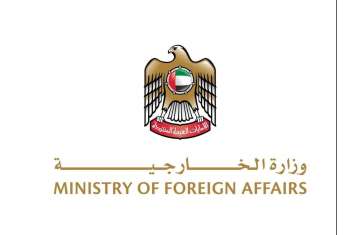
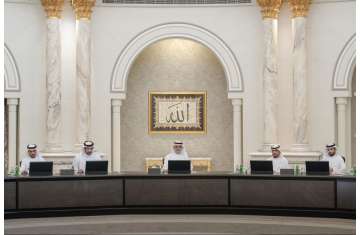
Comments